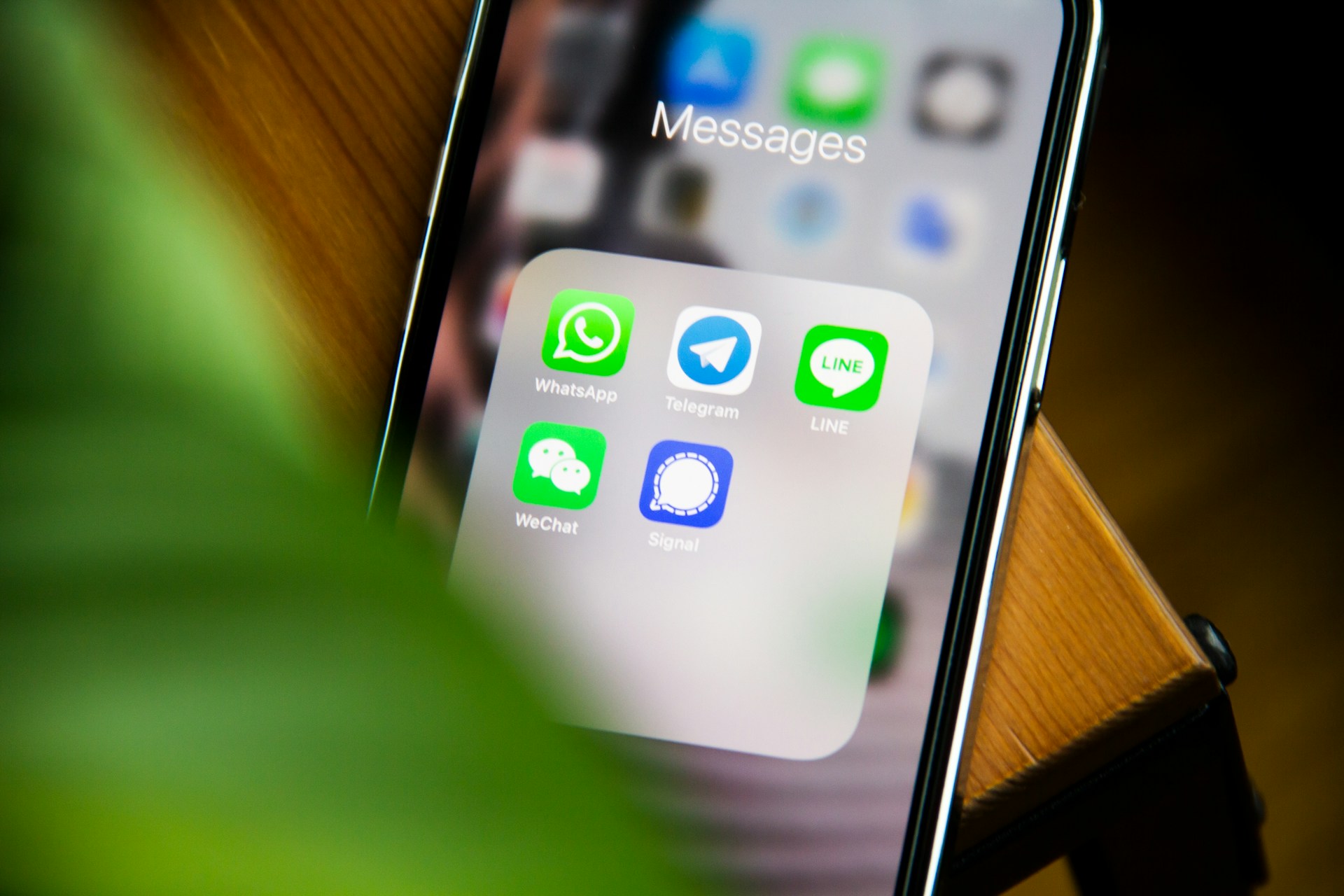The landscape of sales has undergone a dramatic transformation with the rise of messaging apps. Platforms like WhatsApp, Facebook Messenger, and Instagram Direct Messages have become integral tools for businesses seeking to connect with customers instantly and personally. These apps offer a unique opportunity to engage with a vast audience, providing real-time interactions that significantly enhance the buying process.
Messaging apps are particularly effective for sales because they allow businesses to maintain a constant presence in the daily lives of their customers. Through these apps, companies can send personalised messages, promotional offers, and timely updates, directly reaching their target audience. This direct line of communication fosters a stronger relationship with customers and drives higher conversion rates compared to traditional channels.
The incorporation of messaging apps into an omnichannel marketing strategy ensures a seamless customer experience. Businesses can offer a cohesive and efficient service by synchronising these apps with other communication platforms such as email, SMS, and voice calls. This integration enables a holistic view of customer interactions, allowing for better data analysis and more informed decision-making.
Why Messaging Apps Are Effective for Sales
Messaging apps are highly effective for sales because they offer direct, personal communication with customers. Unlike traditional methods like emails or phone calls, messaging apps provide real-time interaction, which can significantly speed up the decision-making process. Customers appreciate quick responses and personalised attention, which can lead to higher satisfaction and conversion rates.
Messaging apps allow for rich media content sharing. Businesses can send images, videos, and documents that help showcase products in a more engaging way. This visual interaction can clarify doubts and convince customers more effectively than text alone. Additionally, messaging apps often have read receipts, ensuring that businesses know when their messages have been seen, allowing for timely follow-ups.
Messaging apps integrate easily with other digital marketing tools, helping to create a seamless communication experience across various platforms. Businesses can collect valuable customer data through these interactions, providing insights into customer preferences and behaviours. This data can be used to tailor future communications, making them more relevant and effective.
Current Trends in Messaging Apps Usage
The usage of messaging apps has been skyrocketing, driven by the increasing number of smartphone users globally. WhatsApp, Facebook Messenger, and Instagram Direct are among the most popular platforms, each with billions of active users. Businesses are capitalising on this trend by incorporating these apps into their marketing and sales strategies.
One notable trend is the rise of chat commerce, where transactions are initiated and completed within the messaging app itself. Customers can browse products, ask questions, and make purchases all in one place. This convenience boosts sales and enhances the customer experience. Another emerging trend is the use of AI-powered chatbots. These bots can handle routine queries, freeing up human agents to focus on more complex issues, thus improving efficiency and response times.
Additionally, messaging apps are increasingly being used for customer support and engagement. Many businesses now offer customer service through these platforms, providing immediate assistance and building stronger relationships with their clients. This trend highlights the shift towards more interactive and customer-centric communication methods, which are proving to be highly effective in boosting sales.
How to Set Up WhatsApp Business for Sales
Setting up WhatsApp Business for sales is straightforward and highly beneficial. First, download the WhatsApp Business app from your app store. After installation, set up your business profile by adding important details such as business name, logo, contact information, and a brief description of your business. This information helps customers identify and trust your business.
Next, utilise the catalogue feature to showcase your products. You can add images, descriptions, prices, and links to purchase, making it easy for customers to browse and buy directly from the app. Organise your catalogue clearly to ensure customers find what they need without hassle.
Lastly, WhatsApp Business’s tools, such as automated messages and quick replies, should be made use of. Automated messages can greet customers or inform them when you’re unavailable, while quick replies can save common responses for easy access. These features ensure efficient and consistent communication, helping to build strong customer relationships and boost sales.
Best Practices for Engaging Customers on WhatsApp
Engaging customers on WhatsApp requires a thoughtful approach to ensure positive interactions. Here are some best practices to follow:
1. Personalise Your Messages: Use the customer’s name and tailor your messages to their interests or past interactions. This personal touch makes customers feel valued and more likely to engage.
2. Be Prompt and Professional: Respond to queries quickly to show that you value their time. Maintain a professional yet friendly tone to foster trust and rapport.
3. Offer Value-Driven Content: Share useful information, exclusive deals, or product updates. Ensure that every message provides value to the customer, rather than just being promotional.
4. Use Rich Media: Include images, videos, and other media to make your messages more engaging. Visual content can effectively showcase products and highlight key features.
5. Respect Privacy and Preferences: Always obtain consent before sending messages and keep within the agreed frequency. Allow customers to opt-out easily if they choose.
By following these best practices, businesses can enhance their engagement on WhatsApp, leading to improved customer satisfaction and increased sales.
Case Study Example: Successful WhatsApp Sales Strategies
One successful strategy involves using WhatsApp to launch a new product. A business can send preview videos, behind-the-scenes content, and exclusive first-buy offers to its WhatsApp contacts. By creating a sense of exclusivity and urgency, customers feel compelled to make a purchase.
Another effective approach is using WhatsApp for personalised customer consultations. For instance, a fashion retailer might offer styling advice through WhatsApp, where customers send photos and receive tailored outfit suggestions. This high-touch interaction can translate into higher sales and customer loyalty.
Additionally, integrating WhatsApp with other sales channels can extend its effectiveness. Combining WhatsApp with email campaigns or social media promotions ensures a cohesive strategy, amplifying reach and engagement. These examples demonstrate how leveraging WhatsApp’s unique features can result in significant sales growth.
Strategies for Using Facebook Messenger to Increase Sales
Facebook Messenger is a powerful tool for boosting sales due to its wide user base and robust features. One effective strategy is to use Messenger bots to automate customer interactions. These bots can handle common queries, provide product recommendations, and even guide users through the purchase process, ensuring a smooth and efficient experience.
Another strategy is to leverage Messenger’s plug-ins on your website. By adding a “Chat with Us” button, visitors can easily connect with your business for instant assistance. This real-time support can help resolve any doubts and speed up the buying decision, leading to higher conversion rates.
Facebook Messenger also supports rich media content so that you can send product images, videos, and even carousels directly to customers. This can help showcase your products in detail and entice customers to make a purchase.
Additionally, running targeted Messenger ad campaigns can help you reach a specific audience who are more likely to be interested in your products, driving up your sales.
Using Instagram Direct Messages for Sales Engagement
Instagram Direct Messages offer a direct line to engage with your followers and potential customers. To maximise this channel, start by responding promptly to any messages you receive. Quick and helpful replies can leave a positive impression and increase the likelihood of a sale.
Host Instagram Live sessions and promote them through Direct Messages. During these live sessions, you can showcase new products, answer questions, and offer exclusive deals. This interactive approach can drive immediate sales and boost customer engagement.
Instagram’s “Swipe Up” feature in Stories can be linked to direct messages, allowing followers to ask questions or make purchases directly. By using attractive visuals and compelling calls-to-action, you can encourage followers to engage via Direct Messages, leading to more personalised and effective sales interactions.
The Role of Webchat in Enhancing Customer Interaction
Webchat is another excellent tool for enhancing customer interaction and driving sales. By integrating a webchat feature on your website, you provide visitors with instant access to support and information. This can help to resolve any uncertainties and push them towards making a purchase.
Webchat allows for real-time communication, which is crucial for addressing any immediate concerns or questions a customer may have. This instant feedback loop can improve customer satisfaction and increase the chances of closing a sale. Additionally, webchat can be used to gather customer information and preferences, which can personalise and improve future interactions.
Webchat can be integrated with other communication channels and tools, such as email and CRM systems, to provide a seamless experience. This integration ensures that all customer interactions are recorded and can be followed up on, leading to a more cohesive and effective sales strategy.
How to Synchronise Messaging Apps with Other Communication Channels
Synchronising messaging apps with other communication channels is vital for a seamless customer experience. Start by connecting your messaging apps to your CRM system. This integration ensures all customer interactions are recorded in one place, allowing for personalised and informed communication across channels.
Use APIs to link messaging apps with email marketing platforms. This allows you to follow up on email campaigns with personalised messages, reinforcing your marketing efforts. For instance, you can send a promotional email and then follow up with a reminder or additional information via WhatsApp or Messenger.
Another effective tactic is to integrate messaging apps with your website’s chat feature. This allows you to capture and continue conversations initiated on your site through messaging apps, ensuring no interaction is lost. By synchronising these channels, you provide a consistent and cohesive experience that enhances customer satisfaction and drives sales.
Benefits of Using Chatbots to Support and Generate Leads
Chatbots are incredibly beneficial for supporting customers and generating leads. They can handle routine inquiries 24/7, providing instant responses and freeing up human agents for more complex tasks. This ensures that customers always receive timely assistance, which can improve satisfaction and trust.
Chatbots can also collect valuable customer information during interactions. This data can be used to qualify leads and personalise future communications, making your marketing efforts more effective. Additionally, chatbots can guide customers through the purchase process, answering questions, providing recommendations, and ensuring a smooth transaction.
Another advantage is that chatbots can follow up with customers post-purchase. They can send order updates, request feedback, and offer additional products or promotions based on the customer’s purchase history. This ongoing engagement helps to build long-term relationships and encourage repeat business.
Tracking and Analysing Performance Across Messaging Platforms
To ensure your messaging app strategy is effective, it’s crucial to track and analyse performance. Use analytics tools to monitor key metrics such as message delivery rates, open rates, and response times. This data provides insights into how well your messages are performing and where improvements can be made.
Another important aspect is to track customer interactions and outcomes. Monitor which messages lead to sales, which ones are ignored, and the common queries received. This information helps refine your messaging strategy to meet customer needs and preferences better.
Regularly review and adjust your strategies based on the performance data. For instance, if you notice that messages with certain types of content perform better, focus on creating more of that content. Continuous tracking and analysis help in optimising your approach, ensuring that you maximise the benefits of using messaging apps for sales.
The Power of Messaging Apps for Sales
Messaging apps like WhatsApp, Facebook Messenger, and Instagram Direct Messages offer powerful tools to boost sales. By understanding their importance and leveraging their unique features, you can enhance customer engagement and drive significant sales growth. Additionally, integrating these apps with other communication channels and using chatbots for support can streamline your marketing efforts and provide a cohesive customer experience.
Messaging apps’ ability to offer real-time interaction, personalised communication, and rich media content makes them invaluable in modern sales strategies. As trends and technologies evolve, staying adaptable and continuously refining your approach based on data-driven insights will ensure that your messaging app strategy remains effective.
To take full advantage of these strategies, consider partnering with Text Global Ltd. Our comprehensive digital marketing solutions, including advanced messaging integrations and omnichannel support, can help your business achieve its sales goals. Contact us today to learn more and start boosting your sales through powerful automated SMS services.




